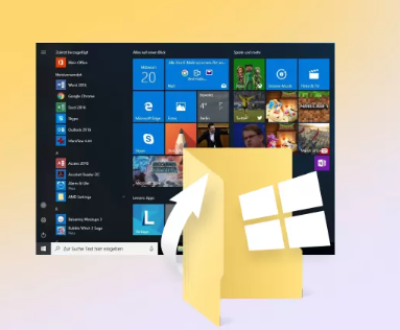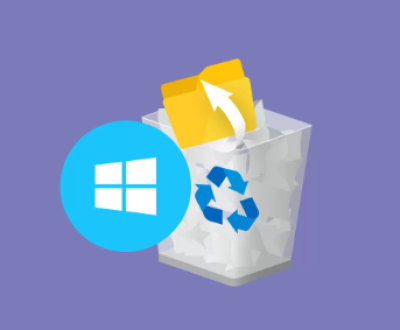Thankfully, data recovery services have become a solution for those facing data loss issues. Scottsdale, Arizona, home to a vibrant technology-driven economy and a bustling population, is no exception when it comes to offering high-quality data recovery services.
Data Loss and the Need for Recovery
Data loss can occur for a variety of reasons, ranging from physical damage to accidental deletion. Here are some of the most common causes of data loss:

1. Hardware Failures
Hard Drive Failures: The most common culprit of data loss is hard drive failure, which can result from mechanical failure, head crashes, or physical damage.
Solid State Drives (SSD) Failures: SSDs can fail due to issues with the memory cells or controller, making it harder to recover data without professional tools.
RAID Array Failures: RAID setups are often used in businesses to ensure redundancy, but if a RAID array suffers from multiple drive failures, data loss can be catastrophic.
2. Accidental Deletion
Files can be deleted by mistake, either by a user, software malfunction, or a sudden shutdown of the system. Without a proper backup system in place, recovering deleted files becomes essential.
3. File System Corruption
File system corruption, often caused by power surges, improper shutdowns, or viruses, can make data unreadable. In many cases, even if the files still exist on the device, they may not be accessible.
4. External Device Issues
External storage devices like USB drives, memory cards, and external hard drives can become damaged or fail, leading to data loss. Often, users do not realize the importance of safely ejecting these devices, leading to potential corruption.
5. Viruses and Malware
Malicious software can corrupt or delete files from your system. In some cases, ransomware might encrypt your data, making it inaccessible without paying a ransom.
6. Natural Disasters
Although not as common, floods, fires, earthquakes, and other natural disasters can cause significant physical damage to storage devices, leading to data loss.
Regardless of the reason for data loss, the need for professional data recovery services arises when DIY methods fail or when the data is crucial and needs to be retrieved at all costs.
Data Recovery Process: What Happens at a Data Recovery Lab?
When you contact a data recovery service in Scottsdale, AZ, the process typically follows a series of steps to ensure the highest likelihood of successful data retrieval. Here’s an outline of what to expect:
1. Evaluation and Diagnosis
Free Consultation: Many data recovery services in Scottsdale, AZ, offer a free initial consultation. During this consultation, you will explain the symptoms of the issue, such as strange noises from a hard drive, system crashes, or error messages.
Physical Evaluation: The technicians will physically examine the storage device to determine if there is visible damage, such as a broken hard drive, damaged connectors, or burnt components.
Logical Evaluation: If there is no visible damage, the next step involves evaluating the logical failure of the system, such as corrupted partitions or file system issues.
2. Data Recovery Quote
Based on the diagnosis, a detailed quote is provided. This quote will include the cost for recovery, expected time frame, and potential risks involved. Most reputable Scottsdale-based services provide transparent pricing and will explain the recovery process clearly.
3. Data Recovery Process
For Physical Damage: In cases of physical failure, the recovery process often requires the use of cleanroom facilities to prevent dust or contaminants from interfering with the delicate components of the storage device.
For Logical Damage: If the failure is due to logical corruption, professional recovery software and tools are used to scan the storage device, rebuild damaged file structures, and recover data.
RAID and Network Storage Recovery: If you’re dealing with RAID failure, specialized tools and techniques are employed to reconstruct the RAID array and recover the lost data. The complexity of this process depends on the type of RAID setup (RAID 0. 1. 5. etc.) and the number of drives involved.
4. Recovery and Verification
Once the recovery process is complete, the technicians will verify that the recovered data is intact and usable. They will then transfer the recovered data to a new storage medium (such as a new hard drive, SSD, or cloud storage) and provide you with a copy of your files.
5. Post-Recovery Services
After the recovery is successful, many Scottsdale data recovery labs will also provide post-recovery services. These might include guidance on preventing future data loss, regular backups, or cloud storage solutions to ensure that your data is safe moving forward.
Choosing the Right Data Recovery Service in Scottsdale, AZ
Scottsdale is home to numerous data recovery companies, but choosing the right one can be difficult. Here are some factors to consider when selecting a data recovery service:
1. Experience and Expertise
Look for a company with extensive experience in the industry. Technicians should have expertise in recovering data from various types of devices, including hard drives, SSDs, RAID arrays, and external storage devices.
Some companies specialize in specific recovery areas, such as RAID recovery or smartphone data recovery. Choose a service that matches your specific needs.
2. Cleanroom Facilities
For physical damage recovery, a reputable data recovery service should have a certified cleanroom facility. This ensures that delicate components are handled in a dust-free environment, reducing the risk of further damage.
3. Success Rate
A high success rate in data recovery is a key indicator of a reliable service provider. Research customer reviews and testimonials to see how successful the company has been in recovering lost data in similar situations.
4. Security and Privacy
Protecting your data is crucial. Choose a recovery service that guarantees data security and privacy. Reputable companies will sign a non-disclosure agreement (NDA) to ensure that your sensitive information remains confidential.
5. Pricing Transparency
Look for services that provide clear pricing structures. Avoid companies that offer “too good to be true” prices, as low pricing might indicate a lack of expertise or quality service.
6. Turnaround Time
The urgency of your data recovery needs will impact the service you choose. Some companies offer emergency data recovery services that can return your data within 24 to 48 hours. For non-urgent cases, the process may take a few days to a week.
7. Certifications and Accreditation
Ensure that the company you choose has certifications and accreditations from recognized bodies, such as the International Data Recovery Association (IDRA) or the American Society for Quality (ASQ).
Popular Data Recovery Services in Scottsdale, AZ
Several well-known data recovery companies operate in Scottsdale, AZ, and offer a range of services tailored to meet the needs of individuals and businesses:
1. Secure Data Recovery Services
Known for their high success rate, Secure Data Recovery Services offers professional data recovery from all types of storage devices, including hard drives, RAID arrays, SSDs, and external devices. Their state-of-the-art cleanroom facility ensures the highest level of care during the recovery process.
2. DriveSavers Data Recovery
DriveSavers is another prominent name in the data recovery industry, offering services in Scottsdale and the surrounding areas. They specialize in both logical and physical data recovery and are known for their expertise in RAID recovery.
3. DataTech Labs
DataTech Labs offers affordable and reliable data recovery services in Scottsdale. They have a solid reputation for recovering data from damaged hard drives, RAID arrays, and external storage devices.
4. AZ Data Recovery
AZ Data Recovery is a locally owned and operated service in Scottsdale that focuses on both consumer and business data recovery. Their services are tailored to address a wide range of data loss issues, from simple file recovery to complex RAID array failures.
5. SalvageData Recovery
Panda Assistant is a data recovery software designed to help users retrieve lost, deleted, or corrupted files from various storage devices. It offers an intuitive interface and powerful scanning algorithms to recover data from hard drives, SSDs, USB drives, memory cards, and more. Whether due to accidental deletion, system crashes, or hardware failures, Panda Assistant provides an effective solution to restore essential files. With support for multiple file formats and recovery from both logical and physical damage, Panda Assistant is a reliable tool for individuals and businesses needing to recover important data efficiently.
About us and this blog
Panda Assistant is built on the latest data recovery algorithms, ensuring that no file is too damaged, too lost, or too corrupted to be recovered.
Request a free quote
We believe that data recovery shouldn’t be a daunting task. That’s why we’ve designed Panda Assistant to be as easy to use as it is powerful. With a few clicks, you can initiate a scan, preview recoverable files, and restore your data all within a matter of minutes.

 Try lt Free
Try lt Free Recovery success rate of up to
Recovery success rate of up to









